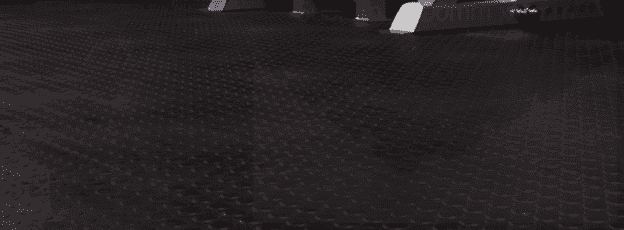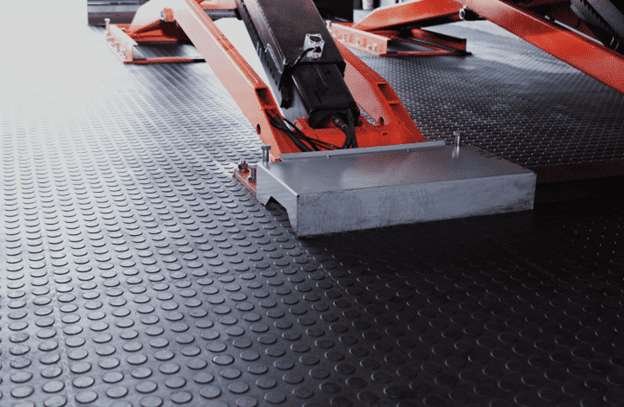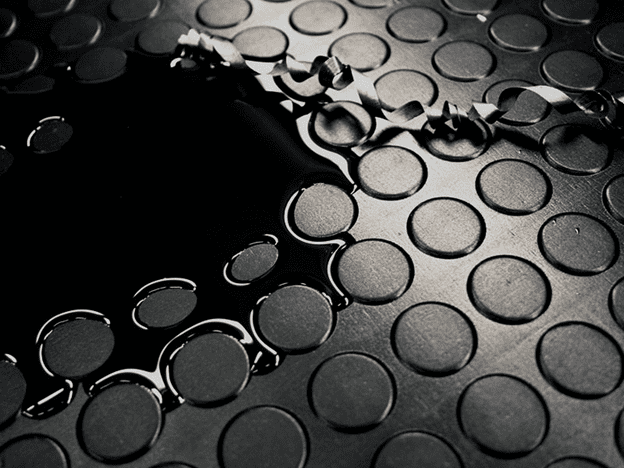A Comprehensive Guide to PVC Mats: Your Durable and Versatile Flooring Solution
Tile Flooring
Tired of outdated flooring in your home? It’s time to bring a touch of elegance and sophistication with our stunning tile flooring options. With our extensive selection of tiles, you can browse and find the perfect match for your unique style and taste. From classic to contemporary, we have a wide range of designs and patterns that will enhance the beauty of any room in your home.
Imagine walking into your home and being greeted by the timeless beauty of tile flooring. Not only will it upgrade the look of your space, but it will also add value to your home. Plus, with the durability and easy maintenance of tile, you can enjoy its beauty for years to come.

Product Description:
10 Types of tile flooring made from PVC:
- PVC Vinyl Tile Flooring: This is a popular type of tile flooring made from PVC that mimics the look of natural materials like wood, stone, or ceramic. It is durable, easy to clean, and comes in a variety of designs and styles.
- Interlocking PVC Flooring: These tiles have a unique interlocking system that allows for easy installation without the need for adhesives. They can be installed over a subfloor and offer versatility in design and colour options.
- Printed PVC Flooring: This type of PVC flooring is created using a printed layer that replicates the appearance of various materials such as marble, granite, or hardwood. It offers a cost-effective alternative to natural materials while still providing a visually appealing floor.
- Luxury PVC Tile Flooring: Also known as LVT (Luxury Vinyl Tile), this high-end type of PVC flooring is designed to mimic the luxurious look of natural materials like stone or hardwood. It offers a more durable and water-resistant option compared to traditional materials.
- Rigid Core PVC Flooring: This type of PVC flooring has a rigid core layer, making it more stable and less prone to expansion or contraction due to temperature or humidity changes. It is suitable for areas with high foot traffic and comes in various designs and styles.
- Peel and Stick PVC Tile Flooring: As the name suggests, these tiles have a self-adhesive backing, making installation quick and easy. They are popular for DIY projects and are available in various patterns and colours.
- Loose Lay PVC Flooring: This type of PVC flooring does not require adhesive or click-locking systems for installation. It uses friction to stay in place and can be installed over most existing hard floors.
- Solid PVC Flooring: Solid PVC tiles are extremely durable and resistant to scratches, stains, and wear. They are suitable for high-traffic areas and offer a long-lasting flooring solution.
- Flexible PVC Flooring: This type of flooring is designed to be flexible and comfortable underfoot. It is often used in areas where comfort and slip resistance are important, such as gyms or playrooms.
- Commercial PVC Flooring: Specifically designed for commercial use, this type of flooring is highly durable and able to withstand heavy foot traffic. It is commonly used in spaces such as retail stores, offices, or healthcare facilities.

Benefits of tile flooring made from PVC:
Durability: PVC tile flooring is highly durable and can withstand heavy foot traffic, making it suitable for high-traffic areas like offices, schools, and commercial spaces.
Water resistance: PVC tile flooring is waterproof, making it ideal for areas that are prone to moisture, such as kitchens, bathrooms, and basements.
Low maintenance: PVC tile flooring is easy to clean and maintain. Regular sweeping and mopping are usually sufficient to keep it looking clean and shiny.
Scratch resistance: PVC tile flooring is resistant to scratches, making it perfect for homes with pets or in areas where furniture may be moved frequently.
Stain resistance: PVC tile flooring is resistant to stains, so spills and accidents can be easily wiped away without leaving marks or discoloration.
Wide range of designs: PVC tile flooring comes in a variety of designs, patterns, and colours, allowing you to choose the style that best suits your interior design preferences.
Comfort underfoot: PVC tile flooring has a slight cushioning effect, providing comfort underfoot and reducing fatigue, especially in areas where people stand for long periods, such as kitchens or retail spaces.
Soundproofing: PVC tile flooring helps absorb sound, reducing noise levels and creating a quieter environment, which can be beneficial in apartments or multi-level buildings.
Heat insulation: PVC tile flooring has good heat insulation properties, helping to keep the floor warm in colder climates, making it comfortable to walk on barefoot.
Cost-effective: PVC tile flooring is generally more affordable compared to other types of flooring materials, making it a cost-effective choice for both residential and commercial applications.
Easy installation: PVC tile flooring is relatively easy to install, with options for both adhesive-backed tiles or interlocking systems, allowing for quick and hassle-free installation.
Eco-friendly: PVC tile flooring is often made from recycled materials, making it an environmentally friendly flooring option.
Fade resistance: PVC tile flooring is fade-resistant, meaning that it will not lose its colour or vibrancy over time, even when exposed to direct sunlight.
Allergen resistant: PVC tile flooring is hypoallergenic and resistant to dust mites, Mold, and mildew, making it a good choice for individuals with allergies or respiratory sensitivities.
Long lifespan: Provided proper maintenance is carried out, PVC tile flooring has a long lifespan, lasting for many years without the need for frequent replacement, ultimately saving on costs.
Maintenance of tile flooring made from PVC:
Regular cleaning: Keep the PVC tile flooring clean by sweeping or vacuuming regularly to remove dirt, dust, and debris. This will prevent scratches and maintain the appearance of the flooring.
Mopping: Use a damp mop with a mild soap or a specially formulated cleaner for PVC tile to remove stains and spills. Avoid using excessive amounts of water, as PVC tile is not waterproof and can become damaged if exposed to standing water for long periods.
Stain removal: Promptly clean up any spills or stains to prevent them from setting into the tile. Use a mild detergent or stain remover specifically designed for PVC tile flooring, following the manufacturer’s instructions.
Avoid harsh chemicals: Avoid using harsh chemicals, abrasive cleaners, or solvents on PVC tile flooring, as they can damage the surface and cause discoloration. Stick to mild cleaning agents recommended for use on PVC tile.
Protect the flooring from scratches: Place felt pads on the legs of furniture to prevent them from scratching the PVC tile when moving or rearranging furniture. Avoid dragging heavy objects across the floor, as this can also cause scratches.
Use mats or rugs: Place mats or rugs by entrances and high-traffic areas to collect dirt and moisture, preventing them from being tracked onto the PVC tile flooring. This will also help protect the flooring from wear and tear.
Repair and replace damaged tiles: If any PVC tiles become cracked, chipped, or otherwise damaged, they should be repaired or replaced promptly to prevent further damage and maintain the overall appearance of the flooring.
Avoid excessive sunlight exposure: Prolonged exposure to direct sunlight can cause fading and discoloration of PVC tile flooring. Use curtains, blinds, or window film to protect the flooring from intense sunlight.
Regular maintenance checks: Periodically inspect the PVC tile flooring for any signs of wear, damage, or loose tiles. Address any issues promptly to prevent them from worsening and causing further damage.

Installation process of tile flooring made from PVC:
- Start by ensuring that the subfloor is clean, dry, and level. Remove any existing flooring and adhesive and repair any cracks or uneven areas in the subfloor.
- Measure the room and calculate the amount of PVC tile flooring needed, accounting for any cuts or waste.
- Acclimate the PVC tile flooring by storing it in the room where it will be installed for at least 48 hours, allowing it to adjust to the temperature and humidity of the space.
- Begin installation in the corner of the room farthest from the entrance. Apply adhesive to the subfloor using a recommended adhesive for PVC tile flooring, following the manufacturer’s instructions.
- Place the first tile in the corner, pressing it firmly into the adhesive. Use spacers to maintain consistent spacing between tiles.
- Continue placing tiles, working your way towards the entrance of the room. Cut tiles as needed to fit around obstacles using a utility knife or a tile cutter.
- Once all the full tiles are laid, allow the adhesive to dry according to the manufacturer’s instructions. This typically takes 24 to 48 hours.
- After the adhesive has cured, remove the spacers, and apply grout if desired. Follow the manufacturer’s instructions for mixing and applying the grout.
- Allow the grout to dry for the recommended time, then clean the tiles with a damp sponge to remove any grout haze.
- Finally, apply a recommended sealer for PVC tile flooring to protect the tiles and enhance their durability and appearance.
Durability of tile flooring made from PVC:
- PVC tile flooring is known for its exceptional durability. It is designed to withstand heavy foot traffic and resist wear and tear over time.
- PVC tiles are highly resistant to scratches, dents, and stains, making them ideal for areas with high traffic, such as hallways, kitchens, and commercial spaces.
- PVC tile flooring is moisture resistant, making it suitable for bathrooms, kitchens, and other areas prone to water exposure. It does not absorb water, preventing warping or damage.
- PVC tiles are known for their resistance to chemicals and oils, making them a popular choice for garages, workshops, and industrial settings where spills and exposure to harsh substances may occur.
- These tiles have excellent resistance to fading and UV radiation. They can maintain their colour and appearance even when exposed to direct sunlight for extended periods.
- PVC tiles are easy to clean and maintain. They do not require specialized cleaning products or extensive maintenance routines, making them a convenient option for busy households or commercial spaces.
- The longevity of PVC tile flooring is further enhanced by its ability to retain its original shape and dimensions over time. They are less prone to expansion or contraction due to temperature variations.
- PVC tiles have good acoustic properties, helping to reduce noise transmission and create a quieter and more peaceful environment.
- The installation of PVC tile flooring is relatively simple and cost-effective. With proper installation and maintenance, these tiles can provide lasting durability for many years.
- Many manufacturers offer warranties for their PVC tile products, which adds to their durability assurance and provides peace of mind to homeowners and business owners.
Comparison to other types of flooring:
- Ceramic tile flooring – Made from clay and minerals, ceramic tiles are popular for their durability and versatility. They are available in various colours, patterns, and sizes.
- Porcelain tile flooring – Porcelain tiles are like ceramic tiles but are denser and less porous, making them more resistant to water and stains. They are often used in high-moisture areas such as bathrooms and kitchens.
- Natural stone tile flooring – This includes options like marble, granite, slate, limestone, and travertine. Natural stone tiles offer a unique and elegant look, but they require regular maintenance and sealing.
- Vinyl tile flooring – Vinyl tiles are affordable, durable, and easy to install. They come in a wide range of styles, patterns, and colours, including options that mimic the appearance of natural materials like wood or stone.
- Laminate tile flooring – Laminate tiles feature a printed image of tile or stone on a fibreboard core, covered with a protective wear layer. They are a cost-effective alternative to natural materials and are available in various designs.
- Cork tile flooring – Made from the bark of cork oak trees, cork tiles provide a soft and comfortable feel underfoot. They are environmentally friendly, resistant to moisture, and offer good insulation properties.
- Linoleum tile flooring – Linoleum tiles are made from natural materials like linseed oil, wood flour, and cork dust. They are available in a wide range of colours and patterns, and they are eco-friendly and durable.
- Mosaic tile flooring – Mosaic tiles are small tiles usually made from glass, porcelain, or stone. They can be arranged to create intricate patterns and designs, adding a decorative element to floors.
- Terracotta tile flooring – Terracotta tiles are made from clay and have a rustic and earthy appearance. They are durable and often used in Mediterranean or Spanish-style designs.
- Concrete tile flooring – Concrete tiles are made from a mixture of cement, sand, water, and aggregate. They can be stained or dyed to create various colours and patterns, offering a contemporary and industrial look.
Product specifications / Technical specifications of Gym and Garage Floor Rubber Tiles
Product Material: 100% recycling PVC according REACH and CE
Shore Hardness: Shore A92
Surface Finish: Studded/ Checkered
Min. operating Temp: -30°C
Max. operating Temp: +65°C
Tile Size: 500x500x5 mm
Weight: 4.8 kg/m²
Produced in: South Africa
Don’t wait any longer to upgrade your home. Visit our website or showroom today and browse our extensive selection of tiles. Find the perfect match that will transform your space into a true masterpiece.
This Post Has 0 Comments